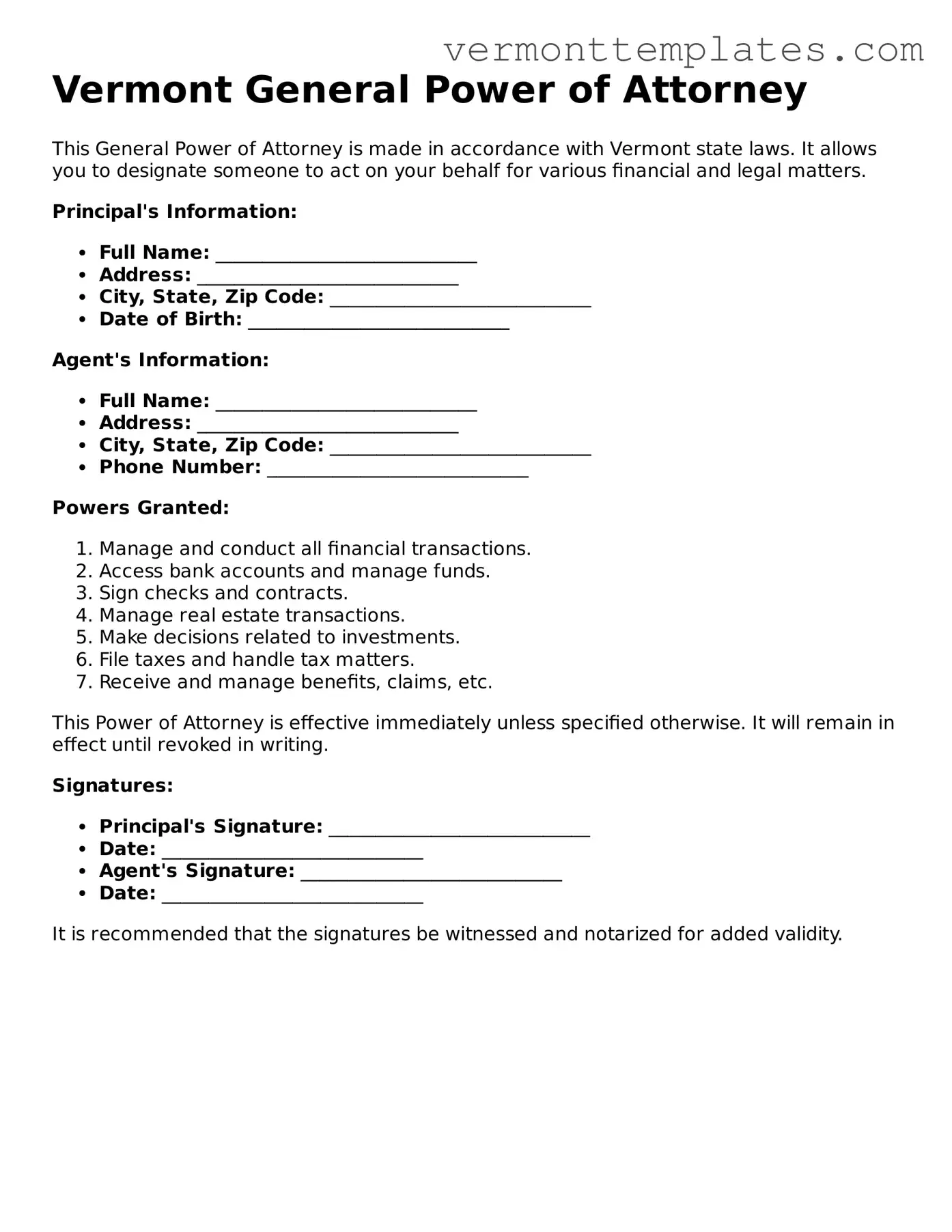The Vermont General Power of Attorney (GPOA) form is similar to the Durable Power of Attorney (DPOA). Both documents allow an individual, known as the principal, to designate another person, referred to as the agent, to make decisions on their behalf. The key difference lies in the durability aspect; while the GPOA may become ineffective if the principal becomes incapacitated, the DPOA remains valid even if the principal is unable to make decisions due to health reasons. This makes the DPOA a preferred choice for individuals concerned about future incapacity.
Another document comparable to the GPOA is the Medical Power of Attorney (MPOA). This specific form allows a person to appoint an agent to make healthcare decisions if they are unable to do so themselves. While the GPOA can cover a broad range of financial and legal matters, the MPOA is focused solely on medical decisions. This distinction is crucial for individuals who want to ensure that their healthcare preferences are honored during periods of incapacity.
The Limited Power of Attorney (LPOA) is also similar to the GPOA but serves a more specific purpose. An LPOA grants an agent authority to act on behalf of the principal for particular tasks or transactions, such as selling a property or managing a bank account. Unlike the GPOA, which provides broad powers, the LPOA is limited in scope, making it ideal for situations where the principal only needs assistance with specific matters.
When dealing with legal transactions in Texas, having a reliable document such as the Texas Bill of Sale form is essential for ensuring a clear understanding between parties. This form acts as a key record, confirming pertinent details of the sale, and is necessary for the legal transfer of ownership. For comprehensive templates and resources related to such documents, you can visit TopTemplates.info.
The Springing Power of Attorney is another relevant document. It becomes effective only under certain conditions, typically when the principal becomes incapacitated. This type of power of attorney is designed to provide a layer of protection, ensuring that the agent’s authority is activated only when necessary. In contrast, the GPOA is effective immediately upon signing, which can be a significant difference for those who prefer to retain control until a specific event occurs.
Trust documents, particularly revocable living trusts, share similarities with the GPOA in terms of granting authority to manage assets. A revocable living trust allows an individual to transfer assets into a trust, managed by a trustee. This can be similar to the GPOA, where the agent can manage the principal’s financial affairs. However, trusts often provide additional benefits, such as avoiding probate and offering more privacy, which the GPOA does not inherently provide.
Finally, the Advance Healthcare Directive (AHD) is akin to the GPOA in that it allows individuals to express their wishes regarding medical treatment and appoint someone to make decisions on their behalf. While the MPOA focuses solely on healthcare decisions, the AHD combines both the appointment of a decision-maker and the specification of treatment preferences. This comprehensive approach can offer more clarity and guidance to healthcare providers and family members during critical situations.

